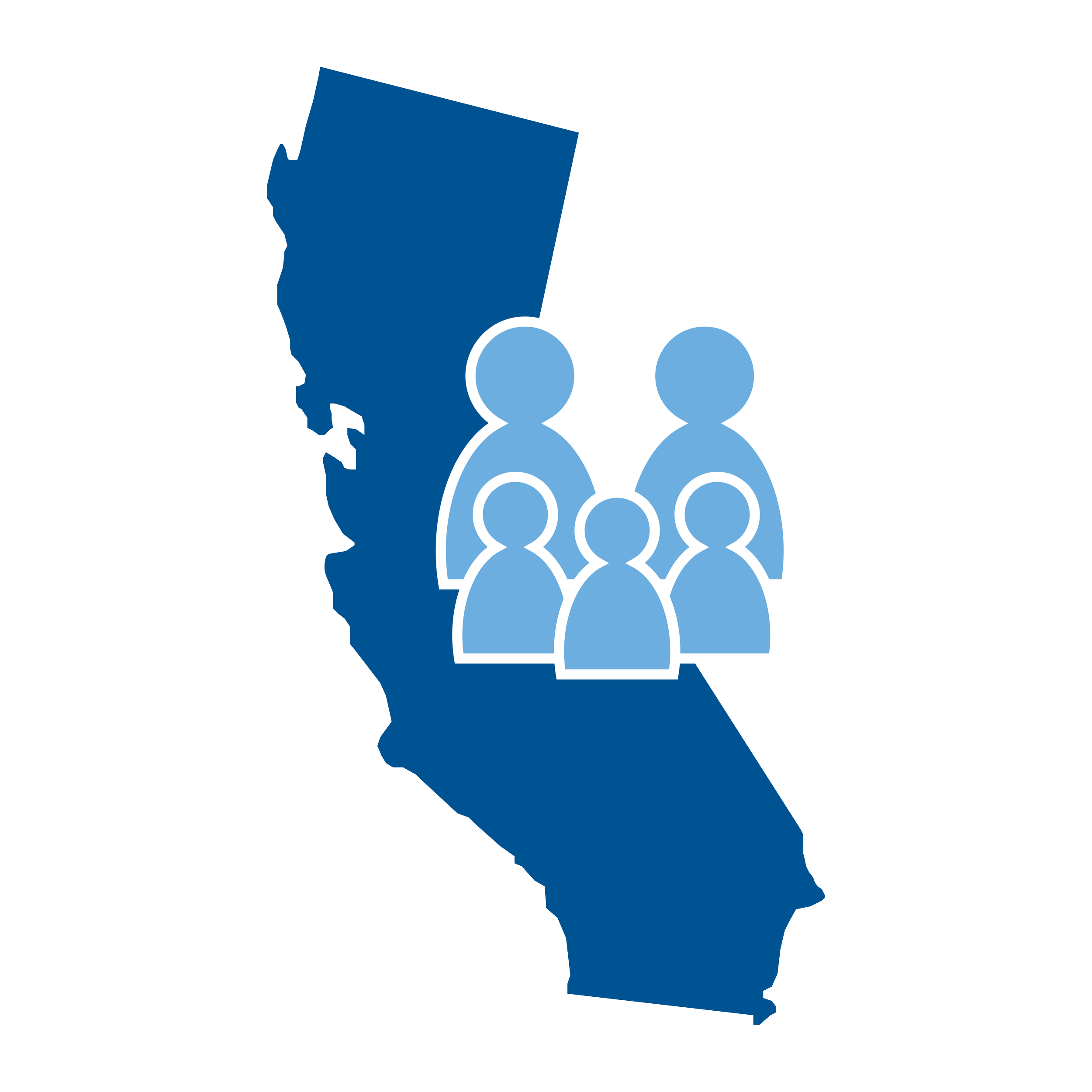
The Child Tax Credit and Family Well-Being: An Overview of Reforms and Impacts
This publication discusses the structure of the Child Tax Credit and its effects on childhood poverty and other indicators of well-being during three distinct phases of the American Rescue Plan.

Inequality Below the Poverty Line since 1967: The Role of the U.S. Welfare State
Today in the United States, unlike in the past, the public policies that do the most to reduce U.S. poverty are also those that do the most to increase inequality among low-income households. This article’s findings reveal that recent state-led antipoverty efforts have placed the near poor and the deeply poor on divergent paths.

Experiences of Poverty Around the Time of a Birth: A Research Note
This research note examines the poverty rate of mothers overall and by birth parity and racial and ethnic group in the six months before and after childbirth. Poverty rates increase after child birth, particularly for first-time mothers, and Black and Hispanic mothers.

The Differential Effects of Monthly & Lump-Sum Child Tax Credit Payments on Food & Housing Hardship
This study investigates the effects of the monthly and the lump-sum expanded Child Tax Credit payments on food and housing hardship in the United States. Families were more likely to use the monthly benefits to purchase food, but the lump-sum benefits to catch up on rent payments.

Income Guarantee Policy Design: Implications for Poverty, Income Distribution, and Tax Rates
This analysis features a fundamental tax reform converting personal deductions and credits into an income guarantee along with higher marginal tax rates.

Intra-Year Employment Instability and Economic Well-Being Among Urban Households: Mitigating Effects of the Social Safety Net
This article examines the associations among employment status, income supports, poverty, and material hardship and whether the safety net buffers against financial hardship among households with unstable employment. Consistent unemployment is strongly associated with low income and poverty status, but not material hardship. Findings also suggest that cash transfers effectively buffer against the negative impact of persistent unemployment, while in-kind transfers appear more important for the unstably employed.

The Effects of Child Poverty Reductions on Child Protective Services Involvement and Placement into Out-of-Home Care
This article shows the reduction in child protective services involvement resulting from implementation of three of the policy packages from a recent National Academy of Sciences proposal to reduce child poverty: child allowance and expansions to the earned income tax credit; the Supplemental Nutrition Assistance Program; and the federal minimum wage.

The Effects of the 2021 Monthly Child Tax Credit on Child and Family Well-Being: Evidence from New York City
This article uses data from two longitudinal studies of well-being in New York City to show that the 2021's expanded monthly Child Tax Credit led to significant declines in experiences of material hardship and multiple hardships, running out of money, and use of food pantries. It did not show evidence of the monthly payments reducing parents’ employment or affecting their mental health.

Exposure to Childhood Poverty and Racial Differences in Economic Opportunity in Young Adulthood
This article uses the Panel Study of Income Dynamics to reveal that racial differences in childhood poverty are more consequential than differential attainment of education, employment, and family formation benchmarks in shaping racial differences in young adult poverty.

No Evidence the Child Tax Credit Expansion Had an Effect on the Well-Being and Mental Health of Parents
Moderate-to-large cash transfers have been found to improve subjective well-being and mental health. In the case of the recent Child Tax Credit expansion, there was no evidence that it had a significant short-term impact on measures of life satisfaction, anxiety, and depression symptomology among adult recipients and the authors speculate that this may be due to the expansion’s temporary nature.

The Benefits and Costs of a U.S. Child Allowance
This benefit-cost analysis of a U.S. child allowance indicates that making the $2000 Child Tax Credit fully refundable and increasing benefits to $3000/$3600 would cost $97 billion per year and generate social benefits of $929 billion per year, a very strong return for the U.S. population.

Estimating Monthly Poverty Rates in the United States
Official poverty estimates for the United States are presented annually and with a considerable lag. This study introduces a framework to produce monthly poverty estimates.

Paying for Child Care to Work? Evaluating the Role of Policy in Affordable Care and Child Poverty
Most working parents need child care. We analyze two approaches to reduce child-care expenses for low-income working families: 1) making the Child and Dependent Care Tax Credit fully refundable and increasing its generosity, and 2) providing subsidies to increase affordability.

Trends in the Economic Wellbeing of Unmarried-Parent Families with Children: New Estimates Using an Improved Measure of Poverty
We re-assess long-term trends in poverty for children in single parent or cohabiting couple families. While single-mother families have the highest poverty rates among families both historically and today, the historical SPM reveals large declines in their poverty rates over time.

The Direct Effect of Taxes and Transfers on Changes in the U.S. Income Distribution
We examine the effects of taxes and transfers on the household income distribution from 1967 to 2015. Despite overall increases in income inequality, the rise of in-kind and tax-based transfers—particularly, food assistance and refundable tax credits—actually saw inequality decline in the bottom half of the income distribution among households with children.

California's Paid Family Leave Law Improves Maternal Psychological Health
We researched the effect of California's paid family leave policy on maternal postpartum psychological distress. Paid family leave is associated with improved mental health for California mothers, suggesting that expansions of state or federal paid family leave policies have the potential to improve maternal postpartum health.

Young Adult Poverty in Historical Perspective: The Role of Policy Supports and Early Labor Market Experiences
Examining long-term trends in young adult poverty, we find that, unlike other groups, poverty among young adults has not decreased since the 1960s. Young adults also lack access to public benefits and programs, are increasingly unmarried and living alone, and remain more disconnected from the labor market.

Gender in the Labor Market: The Role of Equal Opportunity and Family-Friendly Policies
We find that problems with access to family-friendly policies are linked to overall low levels of access to such policies for both women and men. A federal provision for paid family leave, expanded public or subsidized child care, and employer mandates for scheduling control and flexibility can help all families and continue progress towards a more gender-equitable workforce.

Fathers’ Paternity Leave-Taking and Children’s Perceptions of Father-Child Relationships in the United States
We find that improving opportunities for parental leave in the United States may help to strengthen families by nurturing higher quality father-child relationships. Leave, particularly two weeks or more, is positively associated with children's perceptions of fathers' involvement, father-child closeness, and father-child communication.

Racial and Ethnic Disparities in Paid Family and Medical Leave Access and Use
We examine the disparities in paid-leave access and use by race and ethnicity using data from four nationally representative surveys, consistently finding that Hispanic workers have lower rates of paid-leave access and use than their White non-Hispanic counterparts.
